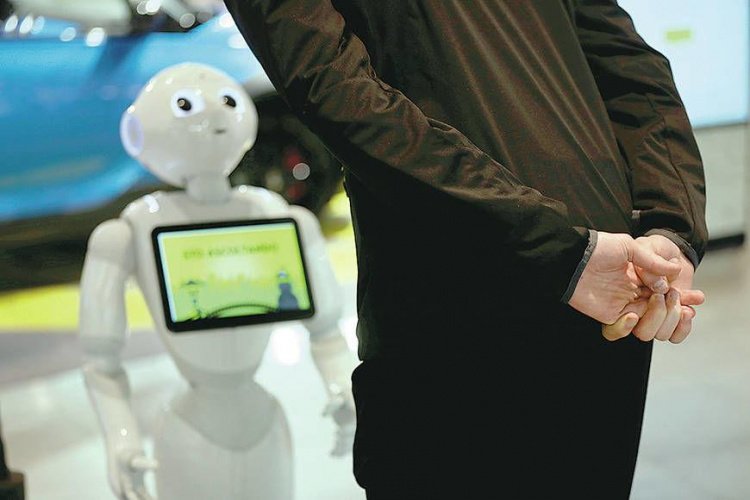Best Practices and Examples For Developing AI-Powered Concierge App

Virtual assistants are finally hitting their stride. From Google Assistant to Siri and Cortana, some of the biggest tech companies in the world are combining artificial intelligence and machine learning to create curated assistance for their customers. But less prominently positioned is the role that this technology can play in the hospitality industry. The hotel business is all about delivering what guests want and when they want it, so an online concierge powered by A.I. allows hotels to deliver what the customer wants before they even know they want it. But the machine learning that powers these apps are on the cutting edge of design, and that means that coders with a confident knowledge of the fundamentals of concierge app development will are increasingly more valuable resources. Here's what you need to know if you're looking to learn how to develop an AI-powered concierge app.
The Features of a Mobile Concierge App
When visitors come to a new city or country, it's often like disembarking in a strange land. In that context, the hotel or resort where they're staying can serve as an oasis in foreign territory. Concierge apps serve two essential purposes: making their hotel feel as much like home as possible and helping them more easily acclimate themselves to the surrounding environs. While these serve as the fundamentals of a good concierge app, they can manifest in a variety of different ways.
Providing a Higher Level of Room Service
Many apps today also coordinate with the room in a similar way to home automation apps like Amazon Alexa. Even if the hotel doesn't have smart thermometers or lights built into their rooms, programming that functionality into the concierge app will allow the app to stay relevant as the hotel evolves. But no concierge app is complete without a database of frequently asked questions. An assistant that can answer the common queries of guests will create a more responsive experience and minimize the time that staff will have to spend answering the same questions repeatedly.
Serving as a Virtual Assistant
Most people don't book rooms in hotels or resorts with the intention of staying in their room day in and day out, and concierge apps play a critical role in planning excursions. An app that can help guests get around the city will emphasize the hotel's reputation as a welcoming host rather than just a place to stay. It can also increase the likelihood that users will continue to use the app to coordinate all of their travel needs rather than using a patchwork assortment of different apps.
There are a number of different options here. The more versatility you can add to your app, the better. But it's important to also keep in mind that the UX and UI become harder to manage with the more components you add. You'll want to prototype the larger interface and create a meticulous blueprint before starting development. The ability to book taxis, create itineraries, and make restaurant and event reservations are important, but the more complicated these become, the higher the risk of feature creep. You have to consider whether or not you'll be using APIs from existing third-party services or route these services directly through your hotel staff. As with the room service functionality, a robust chatbot is important for coordinating all of this care.
Offering Digital Companionship
Examples of Existing Concierge Apps
The concierge app market has blown wide open in the past few years, and some of the biggest names in the hospitality business are working to create their own proprietary apps. Fortunately, they can serve as a critical blueprint for what works and what doesn't.
Edwardian Hotels
While there are a number of hotels that incorporate in-house features for their guests, Edwardian is one of the first to provide the care customers need when they step outside of the hotel's doors. "Edward" has a chatbot that can address complaints and queries, and it will automatically forward guests to live help when it's not equipped to deal with the issues itself. But Edward's real strength comes from its ability to provide information on bars, restaurants, and attractions in the area.
Wynn Las Vegas
Wynn is one of the most luxurious hospitality businesses in the game, and they've made a huge commitment to upgrading its Las Vegas hotel with smart technology. It's in the process of incorporating Amazon Echo into all of its rooms, but it separates itself from some other concierge services by operating on voice alone, bypassing the need for a mobile or web app altogether.
Cosmopolitan of Las Vegas
As with Wynn, the Cosmopolitan skirts around the need for guests to download an app, but it handles its concierge services a little differently. Guests can text or call a dedicated phone number to ask the chatbot questions, order room service, or make reservations.
Image courtesy of KPCNews
About the author:
Victor Osadchiy is a creative writer who formerly worked in the Ed Tech industry. By day, he's a writer about app development for business. By night, he's an online gamer and a big fan of Esports.